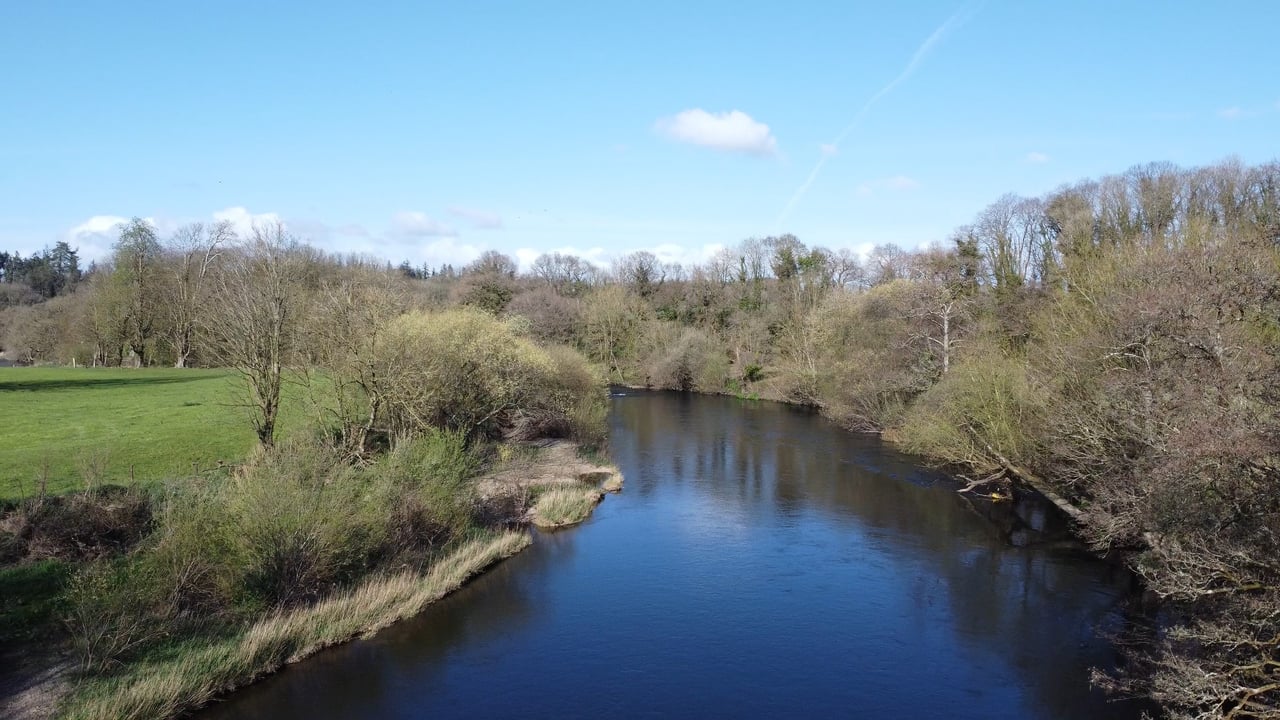River Blackwater Catchment Series


Agriland and Dairygold present 'Blackwater Catchment series'
Agriland Media Group is proud and delighted to team up with Dairygold for a brand new series which will explore the environmental efforts being made by farmers in the Blackwater Catchment area of Co. Cork.
The newly launched RIver Blackwater Catchment programme will bring together a number of government-funded organisations and industry leaders to work on a series of “projects, actions and activities to engage farmers and processors” to implement best farm practices to improve water quality.
The River Blackwater is 170km in length and has a surrounding catchment area of 3,310km².
The catchment is also home to more 100,000 people, over 1,600 milk suppliers to Dairygold, North Cork Creameries, Tirlán and Kerry Dairy Ireland and also boasts a number of beef, pig and tillage family farms and enterprises.
The programme will see the dairy processor partner with Teagasc and the Local Authority Water Programme (LAWPRO), combining their efforts to restore and protect water quality in the area.
Throughout the three-year programme, a steering group will oversee the deployment of key measures, including catchment meetings, Agricultural Sustainability Support and Advisory Programme (ASSAP) water quality farm visits, nutrient balance awareness training, and upskilling events.
Over the course of the next four weeks, the River Blackwater Catchment Series on the Agriland platform will delve into how to analyse a farm system, understand soil type and where nutrient losses are occurring, while getting a feel for how other other farmers operate while implementing these measures.
The series, which will commence tomorrow, Thursday, April 10 with the first instalment, will look at how farmers can reduce the nutrient balances which will positively impact on profitability while reducing the nutrient loss risk to water.
A nutrient surplus is associated with greater risk, and can help identify management practices that may improve efficiency and decrease loss risks.
However, the first step in reducing nutrient losses to water is understanding whether the soil type on farm is heavy or free-draining with free-draining soils being associated with nitrate leaching and heavier soils associated with phosphorus run-off.
The nutrient balance is calculated as the differences between nutrients (nitrogen and phosphorus) imported and exported from a farming system and are expressed on a per hectare basis.
The second instalment in the Dairygold Blackwater Catchment Series will focus on how farmers can improve farm efficiency and productivity while limiting nutrient losses to water by using €60 million funding as part of the 'Farming for Water' European Innovation Partnership (EIP).
There are a number of measures that farmers can take on their farm which are applicable for funding support including: a rainwater management plan; a nutrient management plan; nitrogen surplus calculation; slurry testing; vegetated bunded drains; sediment traps.
There may be a number of measures that farmers are already undertaking on farm which might be applicable for funding also,
Farmers need to see if they are eligible to take part and sit down with their ASSAP advisor to see where the direction of waterflow across the farm is to highlight areas at risk of nutrient, sediment or pesticide loss.
The River Blackwater Catchment Series schedule is as follows:
- Week 1: Teagasc climate advisor for the Kerry/Limerick region, Tom O'Connor explains his role in advising farmers on how to reduce emissions, their nutrient balance and improve farm profitability;
- Week 2: Maurice and Dermott O'Connell are milking 160 cows this year just outside Mallow where they are driving efficiency through the 'Farming for Water' EIP funding;
- Week 3: Thomas and Christopher Kenny from Mourneabbey, Co. Cork are milking 120 cows with a focus on their nutrient balance which is driving efficiency, sustainability and profitability on their farm;
- Week 4: Video - interview with Kevin Twomey who is milking 480 cows in Ballyhooley, Co. Cork where he tdiscusses protecting water quality, breeding efficient cows and being smart with nutrient application.
The series will highlight to readers how implementing these measures to improve water quality can improve the nutrient balance on farms thereby improving overall farm efficiency and profitability.
Managing director of Agriland Media Group, Cormac Farrelly said: "Farm sustainability is so important not just in terms of the environment but also financial sustainability.
"We are delighted to partner with Dairygold on this important series to demonstrate to our wide audience how both environmental and economic sustainability can complement each other."